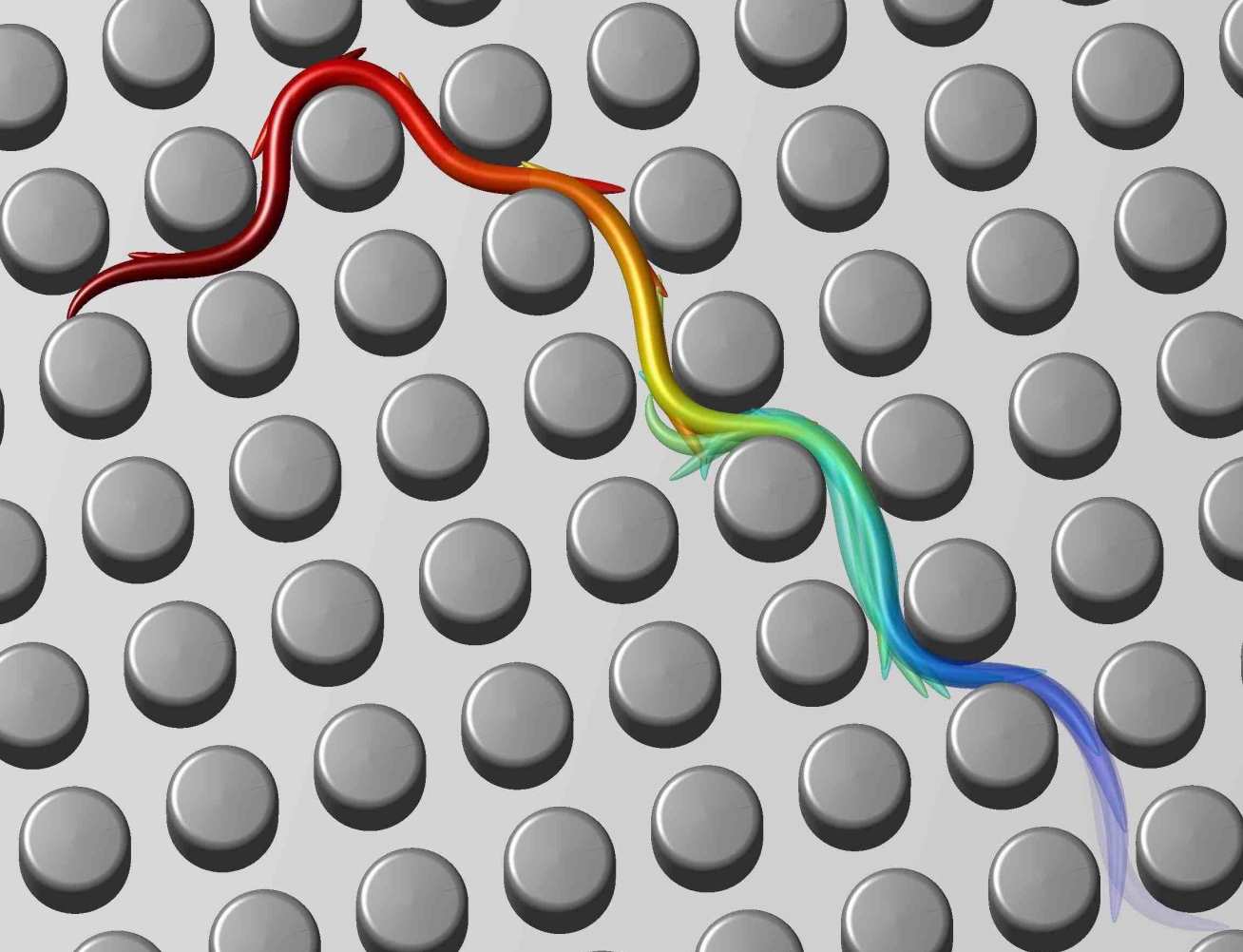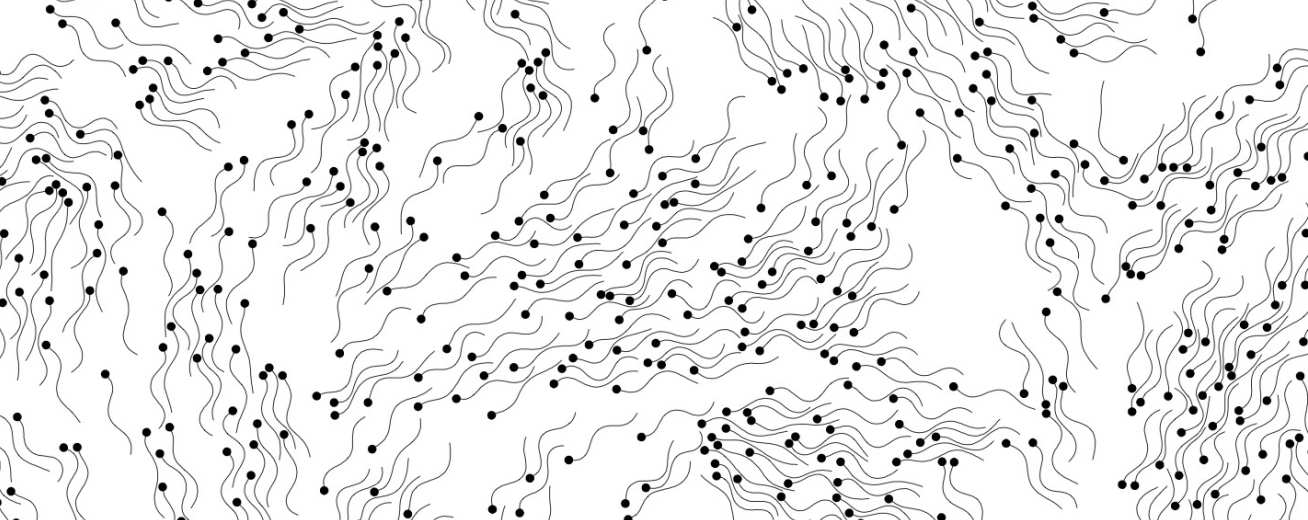
Fluid motion is ubiquitous in the natural world and arises in many biological scenarios such as animal swimming and flying, blood flow in flexible vessels, and air flow in the respiratory tract. Biofluid dynamics research entails applying the mathematical theories of fluid mechanics to provide a quantitative understanding of these biological processes from a mechanical point of view.
The Biofluid dynamics research in the Department encompasses both locomotion and fluid transport problems and does so using a variety of analytical (applied complex analysis, asymptotic analysis) and numerical (boundary integral methods, immersed boundary-type methods) techniques to generate models and to find their solutions. In particular, the group has a strong interest in microscale swimming and cellular locomotion, both in terms of analysing the swimming strategies used by organisms and how the flows that are generated influence collective dynamics.

There is also interest in understanding hydrodynamic interactions of swimming cells with boundaries and other immersed microscopic bodies, such as elastic filaments. Flow through the complex geometry of the cardiovascular system is another area of interest. Pulsatile and even steady laminar flow at moderate Reynolds numbers through curved, bifurcating pipes is not fully understood, but is important in understanding the development of atherosclerosis and in optimising arterial bypass design.
Researchers involved
-
Professor Darren Crowdy
/prod01/channel_3/media/migration/research-groups/DarrenC2-1--tojpeg_1491230000218_x4-1.jpg)
Research interests
Free boundary problems; Vortex dynamics; Low Reynolds number flows
-
Professor Pierre Degond
/prod01/channel_3/media/migration/research-groups/pwpimage--tojpeg_1497448440926_x4.jpg)
-
Dr Eric Keaveny
/prod01/channel_3/media/migration/research-groups/pwpimage--tojpeg_1491231014806_x4.jpg)
Research interests
Microorganism locomotion and cellular mechanics, Suspensions of interacting and active particles, Mechanics of soft materials and complex fluids, Low Reynolds number hydrodynamics, Numerical methods and computational mathematics
-
Professor Jonathan Mestel
/prod01/channel_3/media/migration/research-groups/pwpimage--tojpeg_1491231107752_x4.jpg)
Research interests
Magnetohydrodynamics; Electrohydrodynamics; Biological fluid dynamics
-
Dr Ory Schnitzer
/prod01/channel_3/media/migration/research-groups/pwpimage--tojpeg_1491232590258_x4.jpg)
Research interests
Mathematical Modelling and Applied Asymptotic Analysis; Microhydrodynamics; Electrohydrodynamics; Electrokinetics; Wave motion